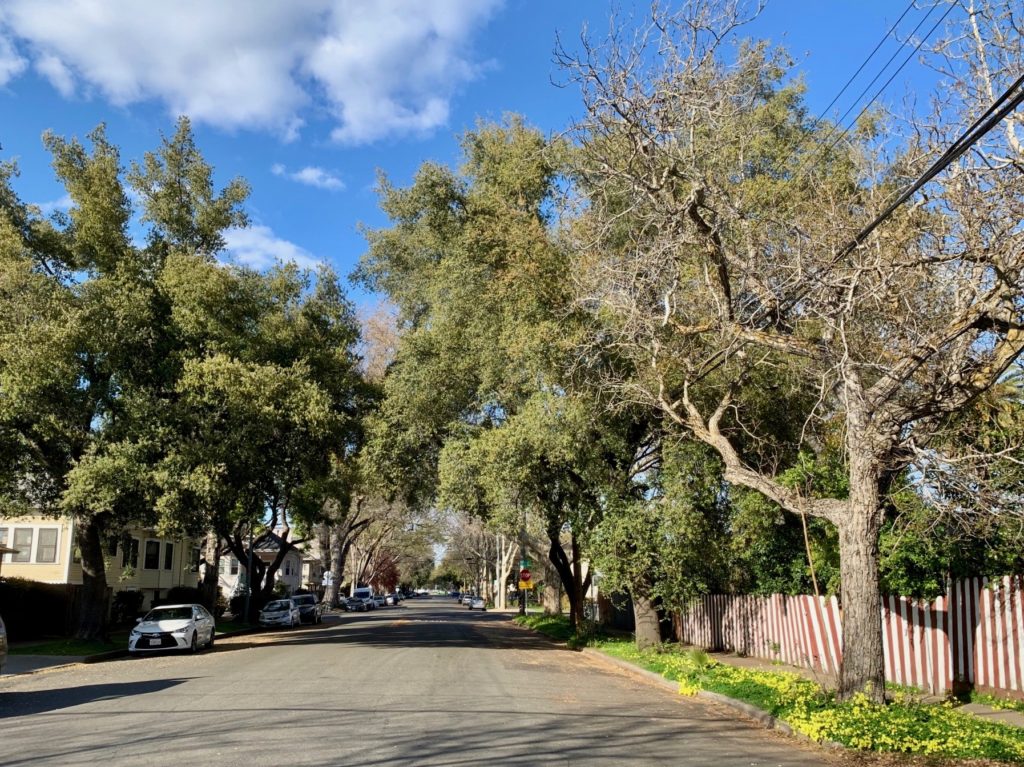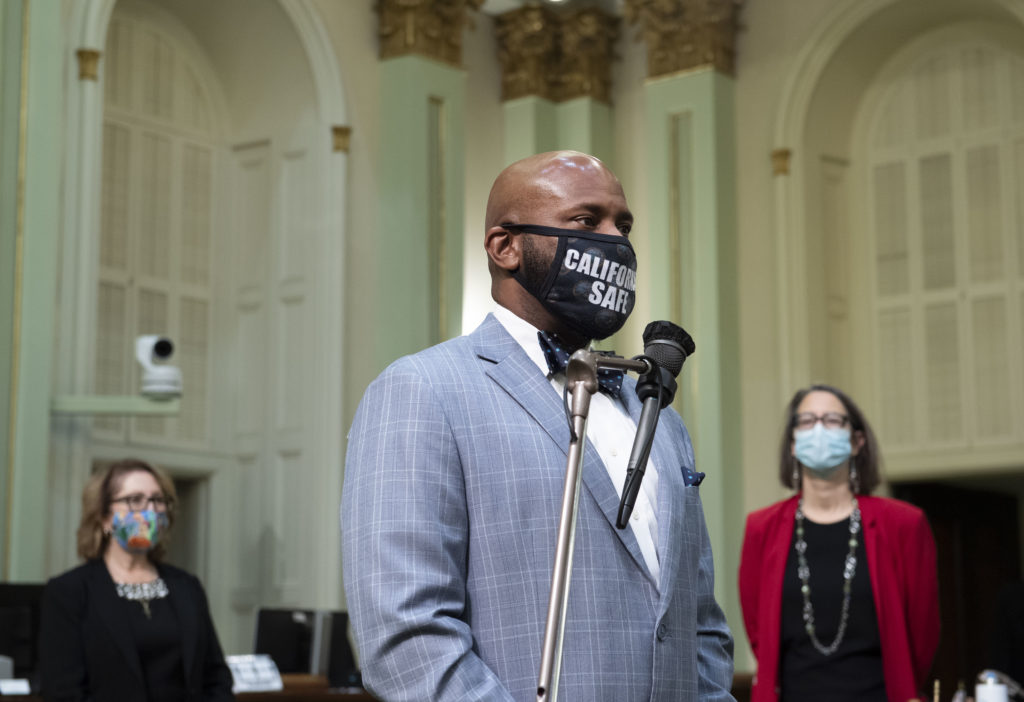Blackstone claimed Sacramento’s housing market for Wall Street during the financial crisis, and it’s at it again during the pandemic – though a bill could come due
By Scott Thomas Anderson
Sacramento has been called “the land of corporate landlords,” a legacy that goes back to the Great Recession when one private equity firm—Blackstone Group—plundered the region’s plethora of distressed homes to become a rental mega-force that no politician or advocacy organization could hold accountable, particularly for the mistreatment of tenants. Back in 2008, Blackstone capitalized on so many area residents losing their homes, and knocked so many ‘mom and pop’ landlords out of the market, that today it’s the largest private property owner in Sacramento County, and the second largest overall after the county itself.
So, exactly how many single-family rental homes does Blackstone own in Sacramento? The exact number is hard to determine because many of these properties are registered to a string of limited liability corporations, or LLCs, and other corporate subsidiaries. It’s estimated the property value of Blackstone’s local holdings is well above $107.5 million, and that the amount of physical property it controls is far above half-million square-feet of rental space, not counting its rental homes in Yolo and Placer counties.
For nearly nine years Blackstone and other corporate landlords have been bundling their portfolios together, securitizing them, and then presenting them to investors as “single-family rental bonds.” This tactic of bringing shareholders and bond-rating agencies into the fold has incentivized most of Wall Street’s rent lords to maximize profits through payment hikes, questionable evictions, aggressive fee collecting tactics and deferred maintenance, i.e., slum conditions.

The dominance of corporate landlords in Sacramento has led to stressed-out tenants and displaced families – all while companies continue to profit. Now, Blackstone and other corporations are finding ways to rake in more money from the COVID-19 crisis, according to a new study co-authored by Johnathan Heller of United for Respect and researchers from the Institute for Policy Studies, Bargaining for the Common Good and Americans for Financial Reform Education Fund. The report’s analysis finds that the top billionaire residential landlords operating in California have wealth totaling over $55 billion; and they’ve seen that wealth increase by $7.9 billion since the start of mandatory lockdowns and layoffs in March 2020. Even more jarring, the study found that the 10 richest corporate landlords, who already own and operate some 184,000 rental units in California, have now secured $191 billion in “cash-on-hand” to buy homes newly distressed by the pandemic.
“A handful of billionaire landlords have seen this pandemic as an opportunity to cash in,” Heller said during a virtual press conference Wednesday, singling out Blackstone as a key offender.
But California lawmakers may have finally had enough. Assemblyman Mike Gipson, who represents Compton – and who’s already passed key gun legislation over the objections of that industry’s powerful lobby – made it clear this week that he has had enough. Gipson’s introduced Assembly Bill 1199, or the Homes for Families Bill.
The legislation would put an excise tax on multi-million-dollar corporate landlords and then use the revenues to fund rental assistance and home ownership programs for working people.
“These corporate landlords are preventing our folks from living the American dream,” Gipson said Wednesday. “They’ve been forced out and can no longer build equity in home ownership … My goal is to disincentivize the hording of single-family homes.”
Gipson added he believes the revenues from AB 1199 would amount to $1 billion annually. The bill would also put new transparency mandates on corporations, in theory making it harder for them to obscure their vast ownership portfolios via mergers and LLCs.
“This requires them to report their identity,” Gipson stressed. “We want to know who’s buying up our community.”

AB 1199 is scheduled for its first committee meetings in the state house in early March.
Given Blackstone’s impact on Sacramento, local housing advocates are already working to get the word out about Gipson’s bill.
“Blackstone and other corporate landlords, they kind of fly under the radar in Sacramento in a lot of respects,” said Elliot Stevenson of the Sacramento Tenants Union. “Their influence in here is especially pernicious, and it’s not scrutinized nearly as much as something like a large apartment complex in Midtown or Downtown would be. These corporations specialize in these single-family home properties for a reason. Any legislature shining some sunlight on them is greatly needed – and long overdue.”






This article does not touch on the real problems in the Sacramento rental market. First, the state/city passed the rent control measures which mean all landlords are going to defer maintenance until there is a change in tenant. No point dumping money into a rental if you can’t get the money back out through higher rent. Second, the progressives continue to make new development impossible meaning supply never changes. The end result will be a slow de-evolution of Sacramento into the citywide ghetto it was 20 years ago. For instance, look at 0 Street in Midtown. Nearly 100% of that street has been renovated in the last 10 year because there was a rental incentive to do so. Now? Gone. Get used to peeling paint and unkept lawns because that is all you are going to see until the state wakes up and repeals rent control measures.
my name is Richard Davis I rented from this company 3 years ago I was forced to move out because of a leaky roof they robbed me did not pay a dime back in in my deposit they lied to me called me names very very nasty invitation homes was the name of the company I am still as of today suffering from from their rudeness
LOL leave it to Bill Bixby to show up and shill for landlords.
Yes, I thought there was something weird about Bixby’s post. Thanks.
@James Cy. I am a landlord so this effects me too. But, I have listed one of Midtown properties for sale already and plan to fully exit the Sacramento market by the end of the year. The coming crash and re-ghettoization of Midtown/Downtown is too obvious at this point. I will tell you what the buyer will do for the property they will purchase from me. They will work to get the current renters out, jack the rent to market rate, and then sit on the property without any maintenance until it looks run down the tenant leaves. They will then do a low cost remodel, jack the rent to market rate and do the same thing again. Rinse and repeat. The real losers will be those where the renters will not leave regardless of how run down the property becomes. Those will depress the whole neighborhood. Again, this is all predictable. After 10 years, they can rename Midtown to “New Detroit”.
I am so sick of all of you slumlords here in Sacramento!! at this point I am done being nice to people like you, eat shit and have a terrible day!
Why can’t developers with heart and wisdom step up?
I am a licensed contractor that use to take care of rental properties for many management companies. As far as I can see most if not all of these companies are the scum of the earth and only care about how much money they can cheat out of their tenants. These criminals would never live in these places that they own and let fall about yet, they constantly raise the rent and never fix anything. They are a pox on our society and need to be put out of business. Hate to break it to you landlords but a home is a place for people to live and not for you to extort them as we all need a place to live.
All this is fine, but it doesn’t mention the elephant in the room: Bay Area renters and home buyers. I can’t blame them for not wanting to pay Bay Area prices, but Sacramento residents are getting priced out of living here. We talk about renovating and repairing properties, but as soon as that happens the apartment/duplex/house is advertised heavily around the bay. I’ve seen this happen- we weren’t even aware that a unit was available for rent when someone was moving in from San Jose, Lafayette, anywhere else that sees this as a bargain.